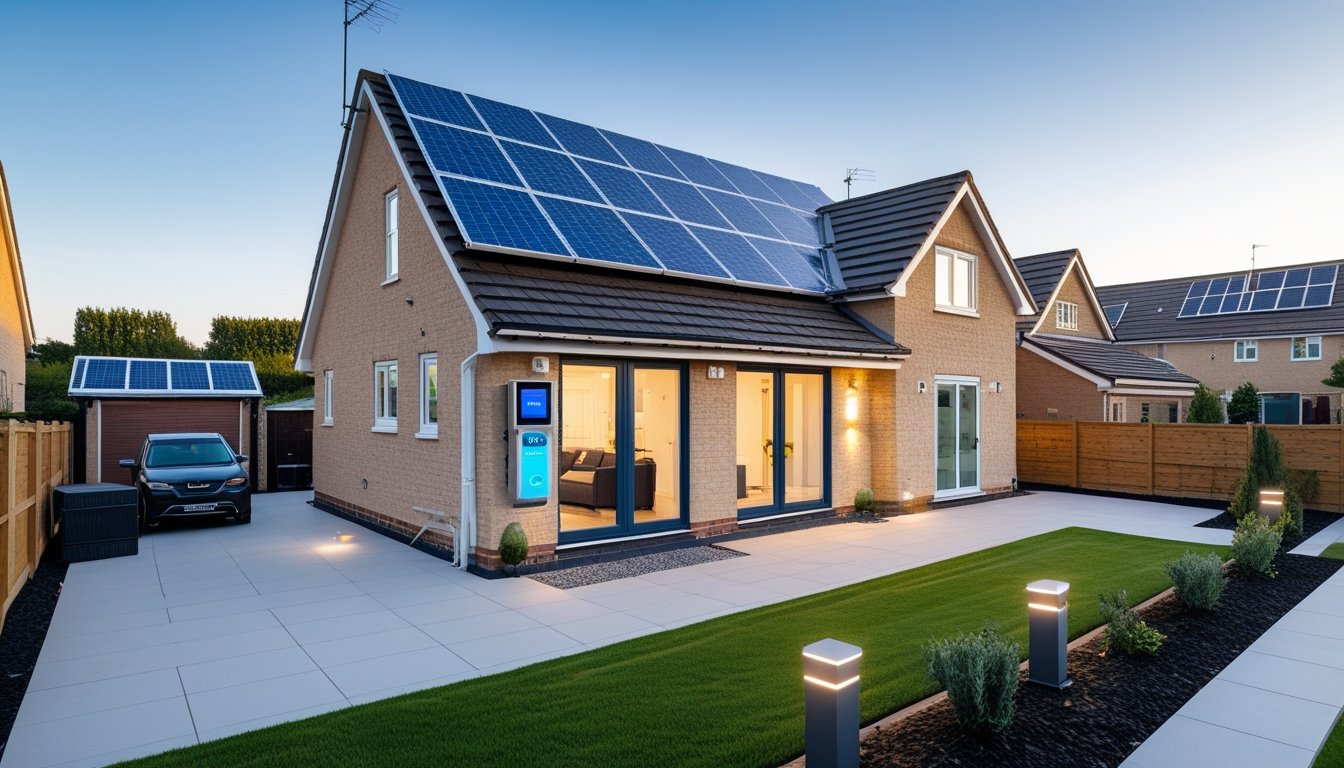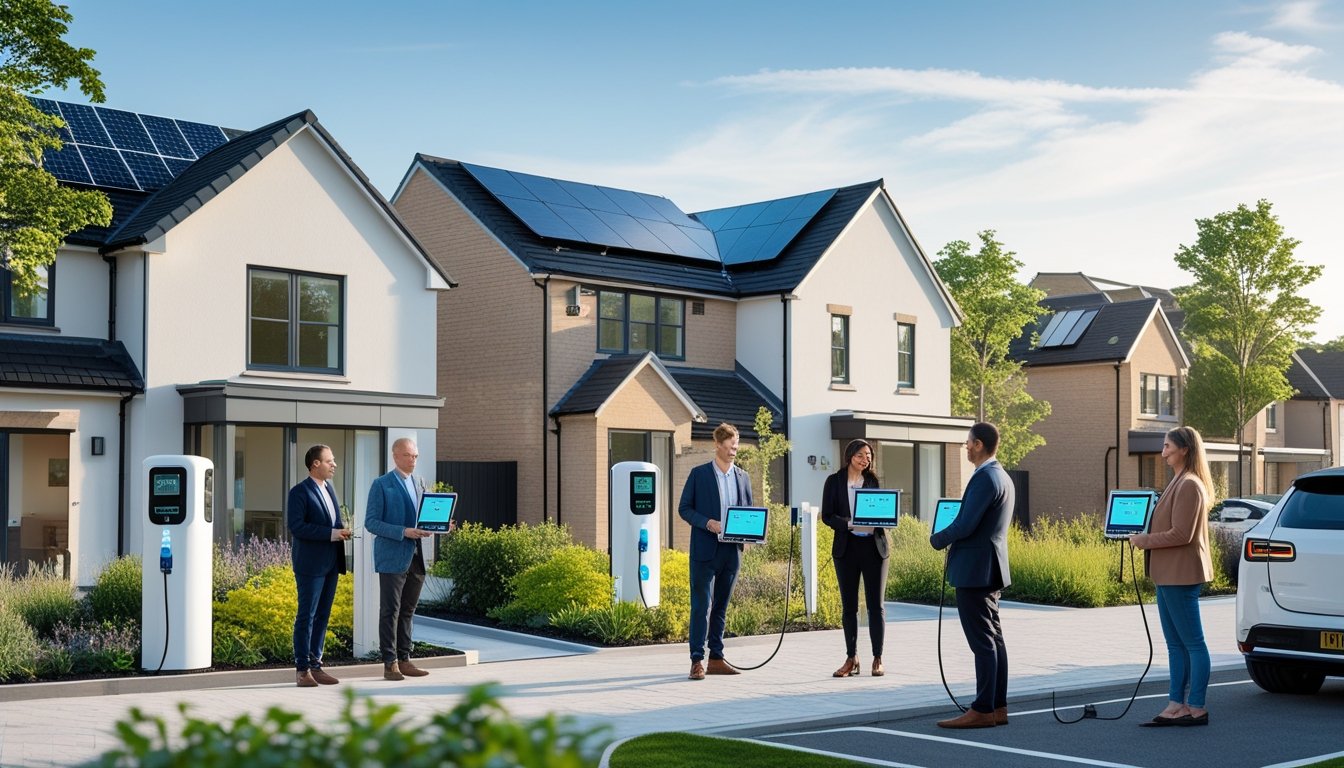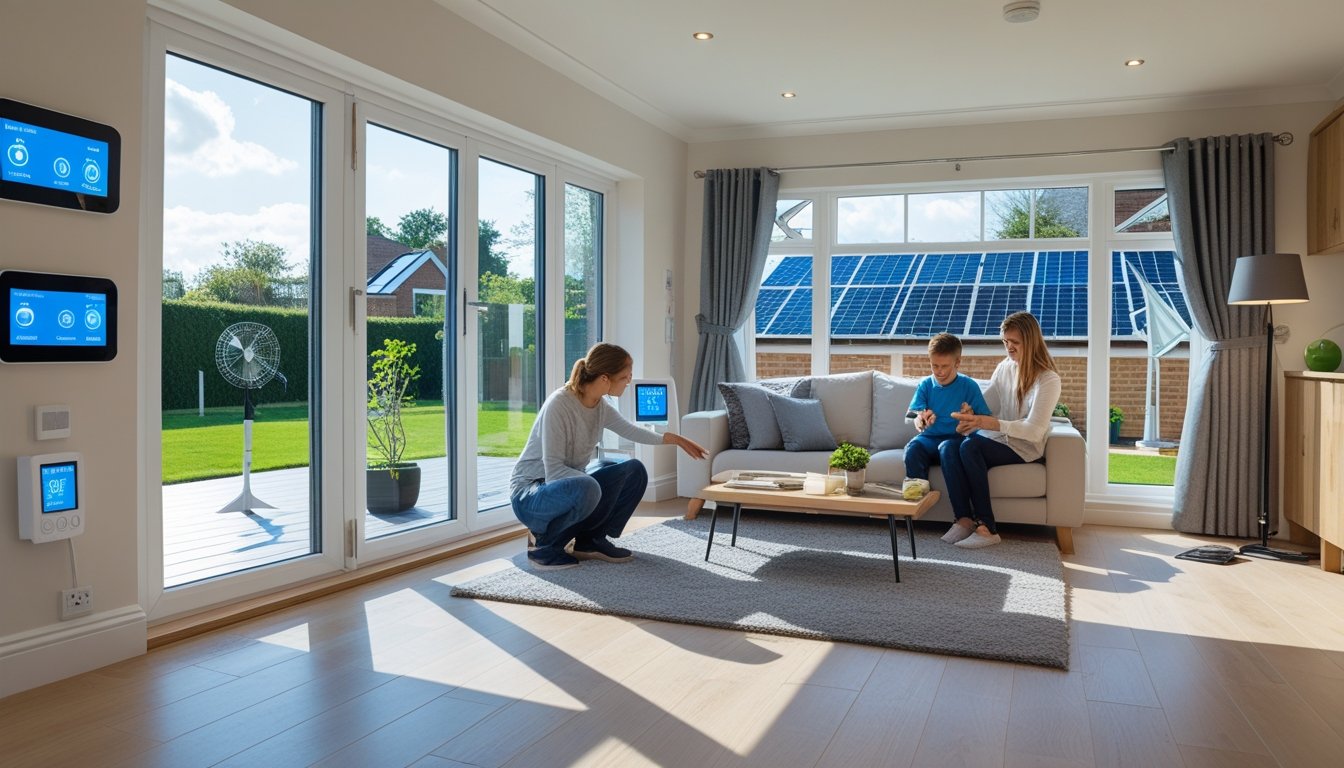Late updated: 05 Jun 2025 09:06
Written by: Eleanor Hartman
Innovative Ways To Improve Energy Efficiency In UK Homes: Cutting-Edge Strategies for Modern Living
Improving energy efficiency in UK homes is not just a buzzword; it's a crucial aspect of combatting climate change and reducing energy bills. Many homeowners are now searching for innovative ways to boost their homes' energy performance without breaking the bank. From advanced insulation techniques to smart home technology, the options available today are both impressive and practical.

Upgrading to smart heating controls or installing draught-proofing are among the top methods homeowners can implement to enhance energy efficiency. These small changes can have significant impacts, ensuring a more comfortable living environment while also lowering energy consumption. In addition, making structural improvements like replacing windows and doors with energy-efficient alternatives can contribute substantially.
Whether it's through adopting simple strategies or investing in sustainable solutions, transforming how our homes use energy is more accessible than ever. We'll explore these approaches, providing you with the knowledge needed to make informed decisions about improving energy efficiency in your home.
Key Takeaways
- Simple upgrades can effectively enhance home energy efficiency.
- Sustainable solutions significantly reduce energy consumption.
- Innovative techniques are vital for modernising energy performance.
Essential Strategies for Improving Energy Efficiency in UK Homes
Improving energy efficiency in UK homes revolves around several key strategies, which include understanding EPC ratings, modern insulation techniques, efficient heating systems, and whole-house retrofits. These elements play a crucial role in reducing energy consumption and supporting the government’s goal of achieving net zero by 2050.
Understanding Your EPC Ratings
EPC (Energy Performance Certificate) ratings provide crucial information on a property's energy efficiency. These ratings, ranging from A (most efficient) to G (least efficient), show us where improvements are needed. Analysing these ratings helps identify areas for energy efficiency upgrades.
We should regularly assess our EPC to ensure our homes maintain optimum energy performance. Higher ratings not only reduce energy bills but also increase property value. With a focus on energy efficiency improvements, individuals can lower their carbon footprint while making informed home improvement decisions.
Modern Insulation Techniques
Modern insulation techniques have advanced significantly to boost thermal performance in homes. Cavity wall, loft, and floor insulations are essential components for minimising heat loss, which in turn reduces energy bills. Choosing high-quality materials will provide better thermal efficiency.
Retrofitting existing buildings with contemporary insulation solutions is vital for older properties in the UK housing stock. By prioritising efficient insulation, we can significantly reduce heating requirements, making homes more comfortable and energy-efficient even during colder months.
Heating Systems and Controls
Upgrading heating systems and implementing effective controls are critical for improving energy efficiency. Emerging technologies provide smart heating solutions, such as programmable thermostats and radiator valves, which optimise heating schedules and reduce wastage.
Exploring government initiatives like the Boiler Upgrade Scheme can help homeowners finance these improvements. Efficient boiler systems combined with modern heating controls mean heating only occurs when needed, leading to significant energy savings and improved efficiency in our homes.
Whole-House Retrofit Approaches
A whole-house retrofit approach involves comprehensively upgrading various aspects of a property's energy performance. This includes improvements to insulation, windows, heating systems, and more, aimed at substantial efficiency gains.
By undertaking a holistic retrofit, we can address multiple areas simultaneously, leading to greater energy efficiency and comfort. Coordinated efforts ensure older housing stock meets modern environmental standards, contributing to the broader goal of a sustainable and low-carbon future.
Advancing Sustainable and Innovative Solutions

In our quest to advance sustainable and innovative solutions for energy efficiency in UK homes, adopting renewable energy and implementing low-carbon technologies are vital. Government policies and financial support play crucial roles, alongside the need for social housing initiatives to ensure equitable progress.
Adopting Renewable Energy Solutions
Renewable energy sources, like solar panels, offer a viable path to achieving net zero by 2050. By harnessing the power of the sun, we can reduce carbon emissions, increase energy efficiency, and cut long-term costs for homeowners.
A growing number of homeowners are investing in solar technology due to its decreasing cost and increased efficiency. With advances in solar panel design, installation has become more accessible and cost-effective. As a community, promoting and supporting these installations is essential for driving widespread adoption.
Incentives and grants have made initial outlays more manageable, offering financial benefits that encourage homeowners to make more sustainable choices. This transition aids in significantly reducing our carbon footprint and contributes positively towards achieving UK’s energy goals.
Implementing Low-Carbon Heating Technologies
Heat pumps represent a pivotal technology in curbing greenhouse gas emissions and improving home energy efficiency. Unlike traditional fossil fuel boilers, ground source or air source heat pumps use far less energy, making them an integral part of the push toward sustainable homes.
Through the government's Boiler Upgrade Scheme, households can receive financial assistance for transitioning to heat pumps, making this green technology more achievable for many. These systems are not only environmentally friendly but also offer reliable heating solutions throughout the year.
Implementing these technologies requires widespread public awareness and understanding. These installations provide substantial savings over time, thereby justifying the upfront investment. Educating homeowners about the benefits and operational advantages of heat pumps remains a necessary focus.
Investment and Support for Upgrades
Investing in energy-efficient home upgrades is fundamental to supporting sustainable practices and achieving net zero goals. Financial support for energy-saving refurbishments, grants, and affordable loan schemes can significantly alleviate the initial financial burden for homeowners.
Collaborating with financial institutions to ensure consumer protection and provide impartial advice is crucial. It allows homeowners to make informed decisions about investing in energy-efficient upgrades, ensuring they are safeguarded against misinformation and poor practices.
Moreover, businesses and the government can drive progress in this area by providing substantial backing to improve materials, techniques, and technologies used in home renovations. Such investments aim to boost energy efficiency and encourage homeowners to participate actively in these initiatives.
The Role of Policy and Social Housing Initiatives
Policies play an indispensable role in advancing energy efficiency. Strict regulations towards energy standards drive innovation in sustainable housing and support the goal of reducing carbon emissions. Moreover, specific initiatives target the social housing sector to ensure that improvements are not limited to the private sector alone.
Government policies should focus on creating more incentives for landlords and incorporate apprenticeship levy initiatives to enhance skills in sustainable building practices. By doing so, we can ensure that the transition to energy-efficient homes is equitable and inclusive.
In the social housing sector, integrating innovative solutions into renovations and new builds is crucial. This commitment ensures access to energy-efficient homes across different socio-economic groups, paving the way for a comprehensive national approach to sustainability.
Frequently Asked Questions

We address key inquiries on enhancing energy efficiency in UK homes, from available grants to optimising home design. We also discuss qualifiers for the Green Homes Grant and examine energy-efficient initiatives. Here we go through these crucial questions.
What grants are available to UK homeowners for enhancing energy efficiency?
UK homeowners have access to several grants to boost energy efficiency. The Energy Company Obligation (ECO) scheme offers support for insulation, heating improvements, and more. The Boiler Upgrade Scheme also provides funding options for installing low carbon heating systems. Exploring these grants can significantly reduce the cost of home energy upgrades.
How can domestic energy consumption be reduced across the United Kingdom?
There are multiple ways to cut energy consumption. Insulating walls, lofts, and floors, and upgrading draught-proofing can reduce lost heat. Installing high-efficiency boilers and using programmable thermostats helps regulate energy usage. Domestic energy audits can highlight changes that lead to more substantial savings.
What improvements qualify for the Green Homes Grant?
The Green Homes Grant supports several energy-efficient home improvements. These include insulation for lofts, walls, and floors, along with the installation of energy-efficient windows and doors. Homeowners can also upgrade to low-carbon heating systems such as heat pumps, which qualify for this grant.
In what ways can home design be optimised for better energy efficiency?
Optimising home design can significantly impact energy usage. Incorporating passive solar design, using high-performance windows, and selecting sustainable materials contribute to energy efficiency. Homes can also benefit from open floor plans that maximise natural light and aim for airtight construction to minimise heat loss.
How does the UK government's energy efficiency rating system work?
The UK uses Energy Performance Certificates (EPCs) to rate the efficiency of homes from A to G, with A being the most efficient. These ratings provide insights into a property's energy use and costs, along with recommendations for improvement. Landlords and sellers are required to provide EPCs during property transactions.
Are there any initiatives similar to Barclays' 'Electrifying the Future' to promote energy savings in UK residences?
Yes, several initiatives encourage residential energy savings in the UK. The Smart Export Guarantee supports small-scale renewable energy. Also, local councils often run energy-saving programs. Collaborations with private sectors, akin to Barclays' initiative, help enhance public awareness and uptake of energy-efficient technologies.